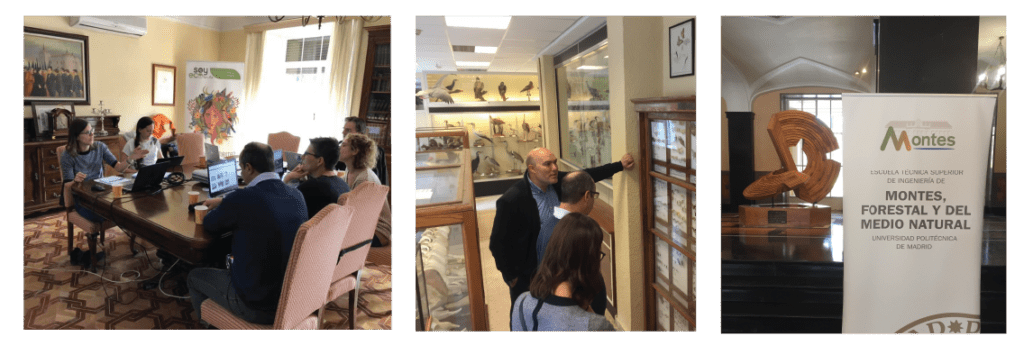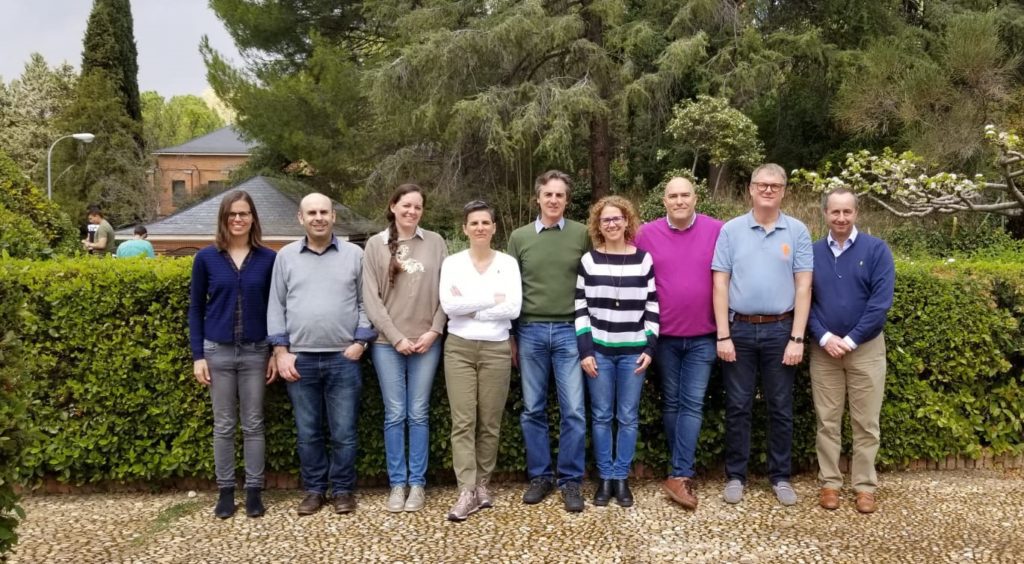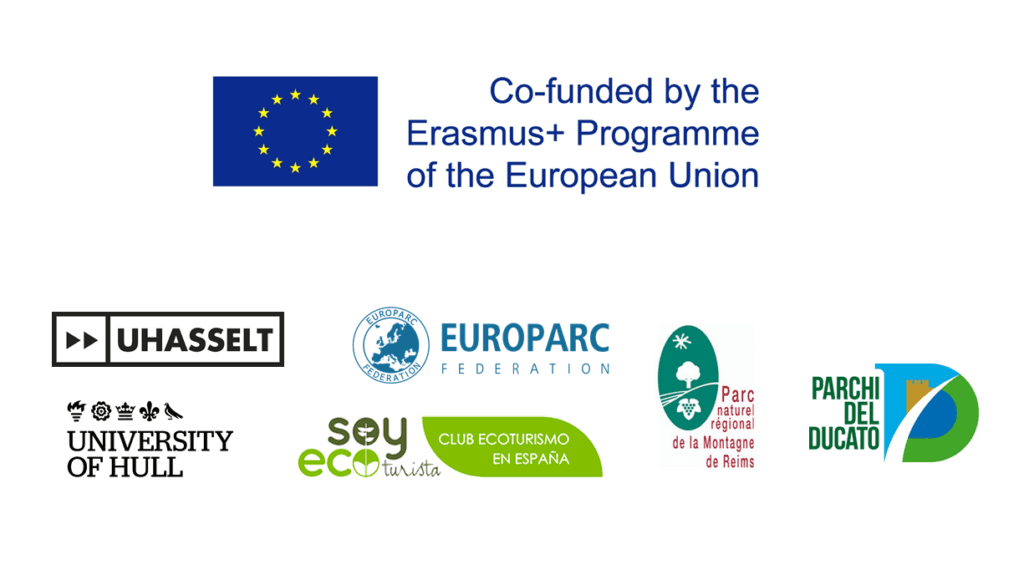Sustainable Tourism Training for Tomorrow: 2nd partner meeting in Madrid
The partners of the project ERASMUS + “Sustainable Tourism: Training for Tomorrow (STTfT)” met in Madrid from the 1st to the 3rd April. The meeting was hosted by the Spanish Ecotourism Association, at the premises of the Escuela Técnica Superior de Ingenieros de Montes de la Universidad Politécnica, to assess the project progress, and finalise the preliminary activities of the project, such as the training needs analysis and the survey on training needs’ gaps.
The project partnership also planned the content production (timing, content, people involved, practical organisation, participants) for the online training platform on Sustainable Tourism in Protected Areas aimed at both learners in professional contexts and trainers that will be made available by the end of 2019 for a first round of tests.

Training Sustainable Tourism Professionals
The project is fully based on the methodology of the European Charter for Sustainable Tourism in Protected Areas (ECST) and on the analysis/discussion/elaboration for 9 key topics of the ECST. This will be the first time that integrated sustainable tourism training content (including case studies and best practice) on all key principles and actions of the ECST will be developed and made available in a single platform aimed at all key tourism stakeholder groups working in European Protected Areas. The online platform will take inspiration from the MOOC format, and also from the newer trend for VOOCs (Vocational Open Online Course).

It is widely recognised that one of the biggest challenges for tourism is the sustainable conservation and management of the natural resources that support it.
The existing “skills gap” on sustainable tourism more widely, and on sustainable tourism in Protected Areas more specifically, has been frequently identified over the past few years in both policy reports and the academic literature. For example, the 2016 “Blueprint for sectoral cooperation on skills” identified shortages across the EU in several traditional core tourism skills (e.g. languages, interpersonal skills, etc), and the EC commissioned the study “Mapping and performance check of the supply side of tourism education and training” (2016), that identified “skills for sustainability” as one of the five specific skills challenges of the sector (together with traditional core skills, ICT skills, accessibility and recruitment).
Furthermore, the report “Sustainable tourism and Natura 2000” (2001) also identified the need for training for PA staff and local tourism enterprises. This project will directly supports the Vilm Declaration on “Professionalising Protected Area Management in Europe” (2013) which stressed the need for jointly developed training activities and products to improve the capacity of PA managers in relevant associated sectors such as tourism.
The second main category of results generated during the project will be a programme of multiplier events, which will be delivered across Europe to widely promote the use of the platform, including:
- a “train the trainer” workshop,
- face-to-face training to reach out large numbers of end beneficiaries (Protected Areas staff, tourism businesses, and local authorities);
- a final dissemination event targeted at European policymakers to showcase the training platform and disseminate the associated publications.
The first step: A Training Needs Analysis Survey
The agreed method for calculation of training needs’ gaps includes the relevance/importance of issue for their job (and/or for efficient/effective engagement with the ECST development and implementation process), versus perception of the current level of ability/knowledge on that issue. By subtracting the average value of perceived “importance” from the average value of “present level of knowledge/ability” (i.e. present level – importance), the project can identify main knowledge/training gaps and list priority areas of focus.
Over the next months, a training needs survey will be distributed across the various networks of the project partnership, including EUROPARC’s. EUROPARC members will have the opportunity to be fully involved in the development of the project, and participate in the training sessions.
The three target groups considered are:
- Staff of PA authorities across Europe;
- Local businesses operating in and around protected areas (e.g. hotels, restaurants, tour operators) who are collaborating with PAs (or aim to) in driving sustainable tourism;
- Staff of local authorities, development groups, business associations, conservation groups etc. who aim to partner with PAs in the development of sustainable destinations (“other stakeholders”).
To keep up to date with the project developments visit the project website: www.sttft.eu

ERASMUS STTfT – Partners in the Meeting held in Madrid. April 2019
